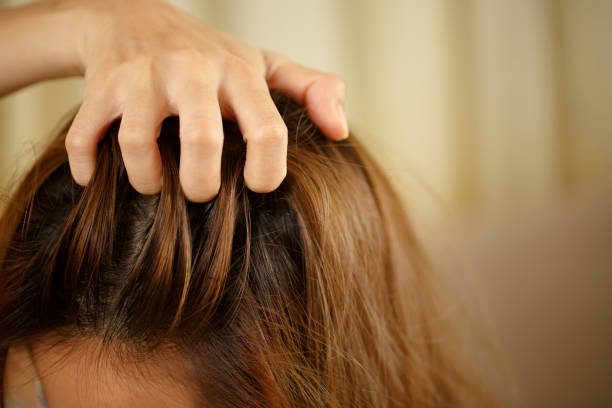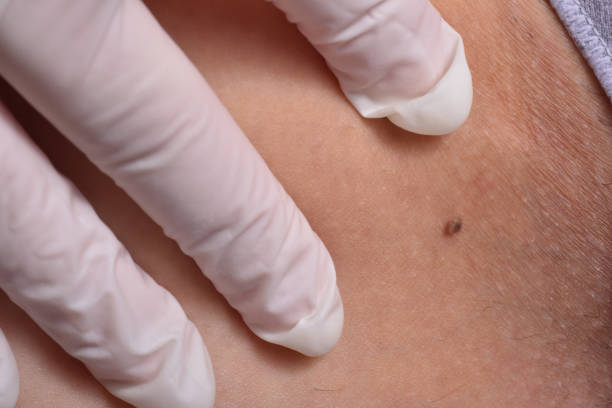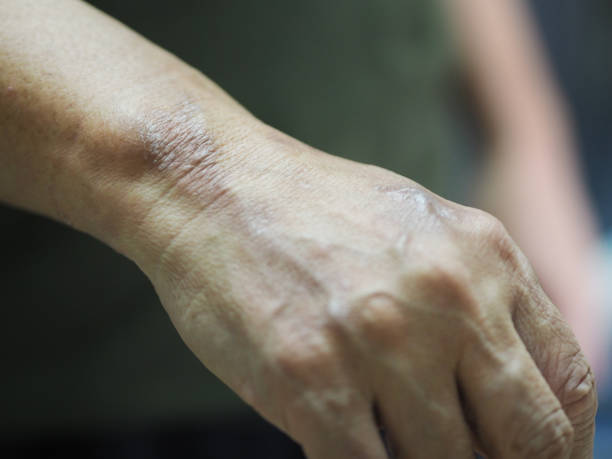Scalp psoriasis is a chronic skin condition that can cause significant discomfort and embarrassment. While genetics and immune system factors play crucial roles in psoriasis, stress is a notable trigger that can exacerbate symptoms. In this comprehensive guide, we will explore how stress can cause scalp psoriasis flare-ups and provide practical tips for managing stress and soothing your scalp with effective home treatments.
Understanding Scalp Psoriasis
What is Scalp Psoriasis?
Scalp psoriasis is a type of psoriasis that affects the scalp, leading to red, itchy, and scaly patches. These patches can extend beyond the hairline and affect the forehead, back of the neck, and around the ears. The condition can range from mild to severe, impacting daily life and self-esteem.
Symptoms of Scalp Psoriasis
- Red patches of skin covered with thick, silvery scales
- Dry, cracked skin that may bleed
- Itching, burning, or soreness
- Temporary hair loss due to scratching or severe lesions
Causes and Triggers
- Genetic predisposition
- Immune system dysfunction
- Environmental factors
- Infections
- Stress
The Connection Between Stress and Scalp Psoriasis
How Stress Affects the Immune System
Stress triggers the release of chemicals like cortisol, which can impact the immune system. In individuals with psoriasis, this can lead to an overactive immune response, causing inflammation and flare-ups.
Stress as a Psoriasis Trigger
Stress is a well-known trigger for psoriasis flare-ups. Emotional stress, anxiety, and even physical stress can exacerbate symptoms, making it crucial to manage stress effectively.
Managing Stress to Reduce Scalp Psoriasis Flare-Ups
Mindfulness and Meditation
Practicing mindfulness and meditation can help reduce stress levels. Techniques such as deep breathing, progressive muscle relaxation, and guided imagery can calm the mind and body.
Regular Exercise
Engaging in regular physical activity can help manage stress. Exercise releases endorphins, which are natural mood lifters, and helps reduce the production of stress hormones.
Adequate Sleep
Quality sleep is essential for stress management. Establishing a regular sleep routine and creating a restful environment can improve sleep quality and reduce stress.
Healthy Diet
A balanced diet rich in fruits, vegetables, lean proteins, and whole grains can help manage stress. Certain foods, like those high in omega-3 fatty acids, can reduce inflammation and promote overall health.
Professional Help
Seeking professional help from a therapist or counselor can provide strategies for coping with stress. Cognitive-behavioral therapy (CBT) and other therapeutic approaches can be beneficial.
Scalp Psoriasis Treatment at Home
Topical Treatments
- Coal Tar: Reduces scaling, itching, and inflammation.
- Salicylic Acid: Helps remove scales and smooth the skin.
- Moisturizers: Keeps the scalp hydrated and reduces itching.
Natural Remedies
- Aloe Vera: Soothes and moisturizes the scalp.
- Tea Tree Oil: Has anti-inflammatory and antimicrobial properties.
- Coconut Oil: Moisturizes and reduces itching.
Home Care Tips
- Gentle Shampooing: Use a gentle, psoriasis-friendly shampoo to avoid irritating the scalp.
- Avoid Scratching: Scratching can worsen symptoms and lead to hair loss.
- Sun Exposure: Moderate sun exposure can help reduce psoriasis symptoms, but it’s essential to protect the skin from sunburn.
Scalp Massage
A gentle scalp massage with natural oils can improve circulation, reduce stress, and promote relaxation. Oils like jojoba, argan, and olive oil can be particularly beneficial.
FAQs
Can stress directly cause scalp psoriasis? While stress alone does not cause psoriasis, it can trigger flare-ups in individuals already predisposed to the condition.
How can I identify if stress is triggering my psoriasis? If you notice a correlation between stressful events and psoriasis flare-ups, stress might be a trigger. Keeping a symptom diary can help identify patterns.
Are there any foods that can help manage scalp psoriasis? Foods rich in omega-3 fatty acids, antioxidants, and anti-inflammatory properties, like salmon, blueberries, and leafy greens, can help manage psoriasis symptoms.
Is it safe to use natural remedies for scalp psoriasis? Many natural remedies, like aloe vera and coconut oil, are safe and can be effective for managing symptoms. However, it’s always best to consult with a healthcare provider before starting any new treatment.
How long do home treatments take to show results? The time frame for seeing results can vary depending on the treatment and the severity of the condition. Some individuals may notice improvements within a few weeks, while others may take longer.
Can scalp psoriasis lead to hair loss? Yes, severe scalp psoriasis can lead to temporary hair loss due to scratching, inflammation, and harsh treatments. Managing symptoms effectively can help minimize this risk.
Conclusion
Managing stress is crucial for individuals with scalp psoriasis to prevent flare-ups and maintain a healthy scalp. By incorporating stress-reducing techniques and effective home treatments, you can soothe your scalp and improve your quality of life. Always consult with a healthcare provider before starting new treatments to ensure they are appropriate for your condition.




